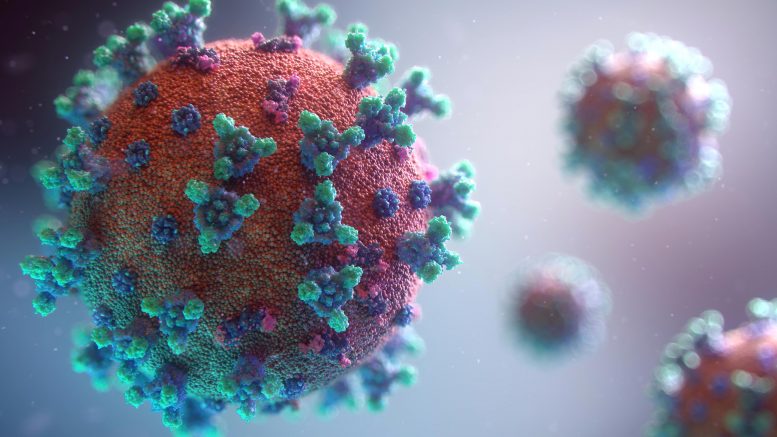
Treatment Reduces Lung Damage and Results in Mild Symptoms in a Preclinical Study
A novel decoy protein designed by Northwestern Medicine scientists fools SARS-Cov-2 by intercepting the spike of the coronavirus and rendering it impotent.
The novel protein significantly reduced lung damage and resulted in only mild symptoms in mice infected with SARS-Cov-2, while untreated animals in this model all succumbed to the infection.
“We envision this soluble ACE2 protein will attenuate the entry of coronavirus into cells in the body mainly in the respiratory system and, consequently, the serious symptoms seen in severe COVID-19,” said lead investigator Dr. Daniel Batlle, a professor of medicine at Northwestern University Feinberg School of Medicine and a Northwestern Medicine physician. “We have converted a lethal disease to a milder lung disease that is fully reversible. The protein could be complimentary to other potential treatments or effective alone.”
Fooling the Coronavirus
The protein is a variant of ACE2 (angiotensin converting enzyme-2), the receptor the coronavirus uses to enter and infect human cells. The modified protein intercepts the S spike of the coronavirus and fools it into binding to it rather than the real ACE2 receptor in cell membranes.
The study is the first proof of concept that a soluble human ACE2 protein is effective in vivo in a preclinical study using an appropriate animal model. The soluble ACE2 protein variant developed by Batlle and colleagues binds well to the coronavirus and has been enhanced so it’s effective for days.
“While widespread vaccination is the best way to combat the COVID-19 pandemic, there will always be a need for treatment of people who were not vaccinated or for whom the vaccine was not fully effective,” Batlle said.
The study is a pre-print, which means the findings should be considered preliminary until it is published in a peer-reviewed journal.
Investigators tested the protein in a genetically modified mouse model, because normal rodents are resistant to infection by the coronavirus causing COVID-19. Mouse ACE2 does not bind the coronavirus. But the transgenic mouse can be infected by the coronavirus, because in addition to its own mouse ACE2 it also has human ACE2 in its tissue.
Translating Kidney Research to COVID-19
Batlle’s lab has studied ACE2 for many years as part of a potential treatment for kidney disease. Batlle and study co-author Dr. Jan Wysocki, research assistant professor of medicine at Feinberg, have bioengineered novel ACE2 variants licensed to Northwestern University. They believe the variants can be adapted for COVID-19 therapy by intercepting the coronavirus and preventing it from attaching to the natural ACE2 receptor in the membrane of the cell.
The next steps involve the planning of safety studies needed before applying for Investigational New Drug approval for future studies in patients with COVID-19.
The study was supported in part by the Joseph and Bessie Feinberg Foundation, a gift from the state of Dr. Frank Krumlowsky and the George M. O’Brien Kidney Research Core Center (NU GoKidney) supported by the award P30 DK114857 (National Institute of Diabetes and Digestive and Kidney Diseases). Dr. Batlle received unrelated support from grant RO1DK104785 from the National Institute of Diabetes and Digestive and Kidney Diseases of the National Institutes of Health.
Never miss a breakthrough: Join the SciTechDaily newsletter.
2 Comments
In addition to fooling the coronavirus, does it also fool other molecules that need to bind to the ACE2 receptor?
Dear Dr
The above article is very interesting indeed , my question .. if Corona virus uses ACE receptors on lung surfaces to enter why not use ACE Inhibitors to block the entry , there was an article that alluded to something similar .. may be if we use ACE Is collectively can achieve better results , may be if we can deliver them via ( Inhaler) or ( Nebulizer ) to limit effect to lung tissues will be better , wonder if my ideas make sense ??